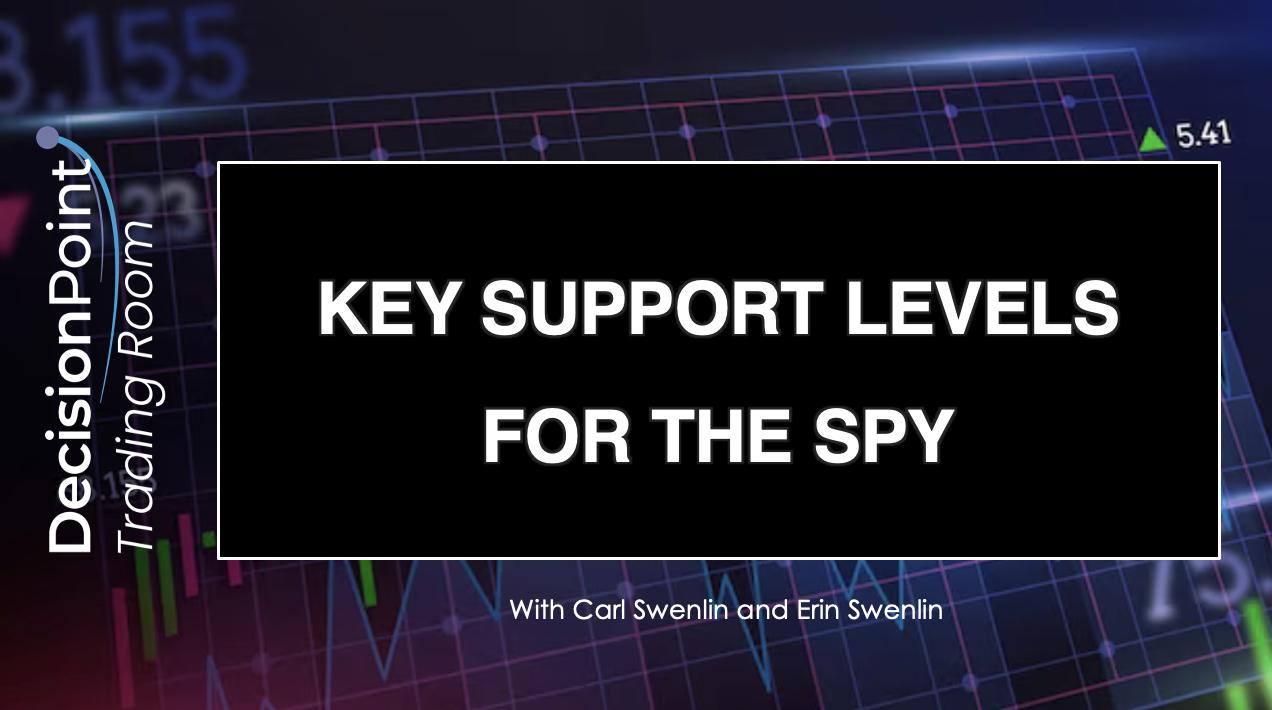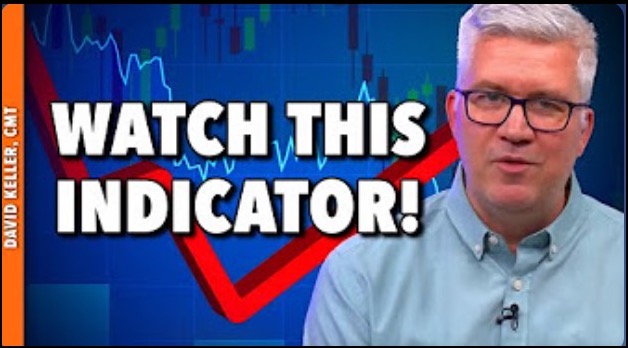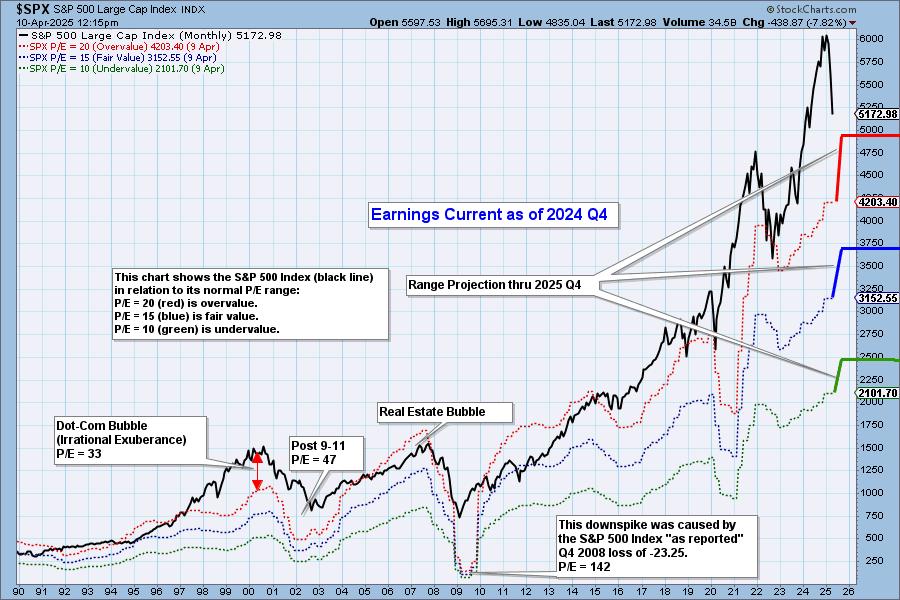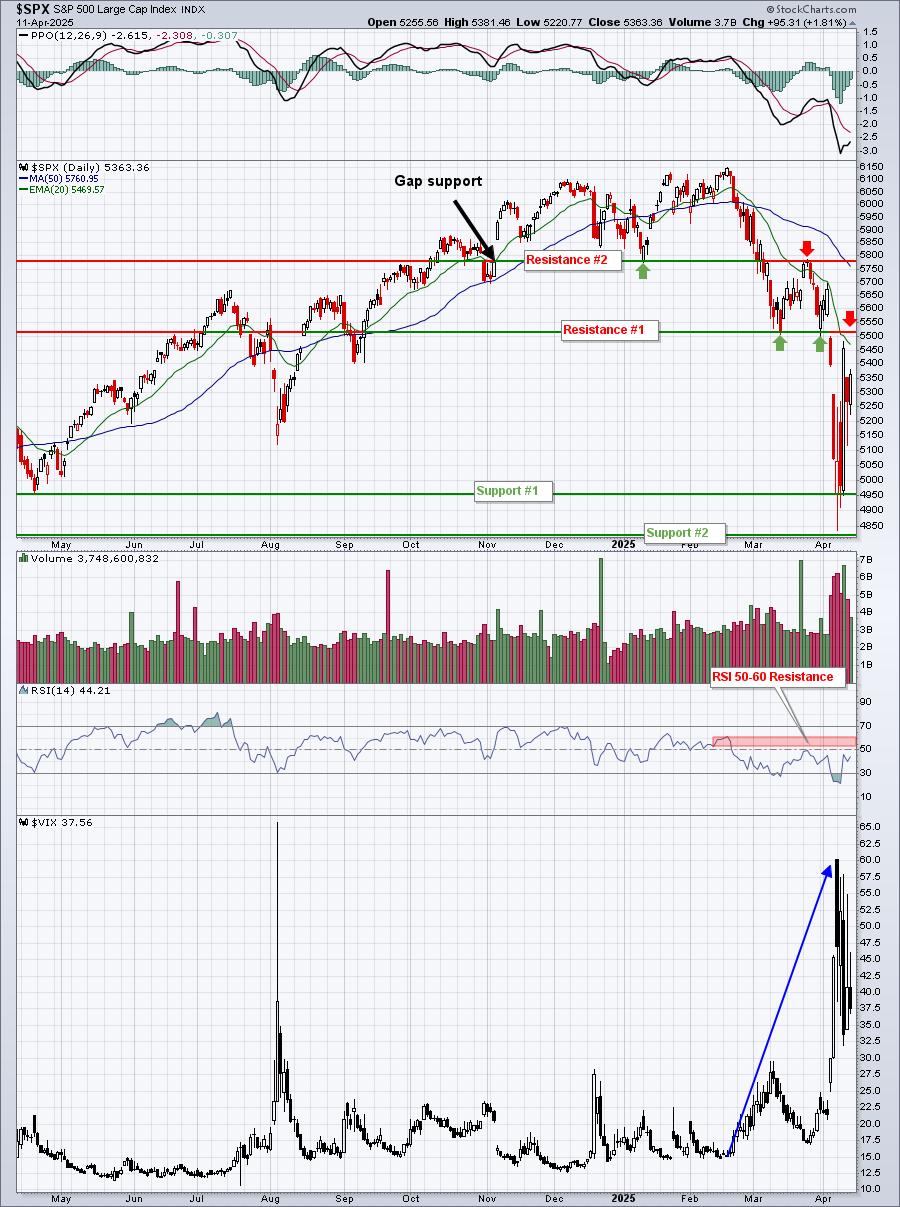Stocks extended their gains with mid-caps, small-caps and micro-caps leading the way. The Russell Microcap Fund (IWC) was up almost 1% on the day. The sectors were mixed with the defensive sectors on the, well, defensive. The healthcare, consumer staples and utilities sectors were all down on the day. The other six sectors gained with the Finance SPDR (XLF) leading the way (-1.06%). Overall, the medium-term and short-term trends are up for the major index ETFs. Stocks are, however, short-term overbought and ripe for a rest, but timing a correction is a challenge. The charts below show the AD Line and AD Volume Line for the S&P 500. The pink trend lines extending up mark upswing support for these indicators and the S&P 500. A break by all three would be short-term bearish and argue for a correction of some sort.
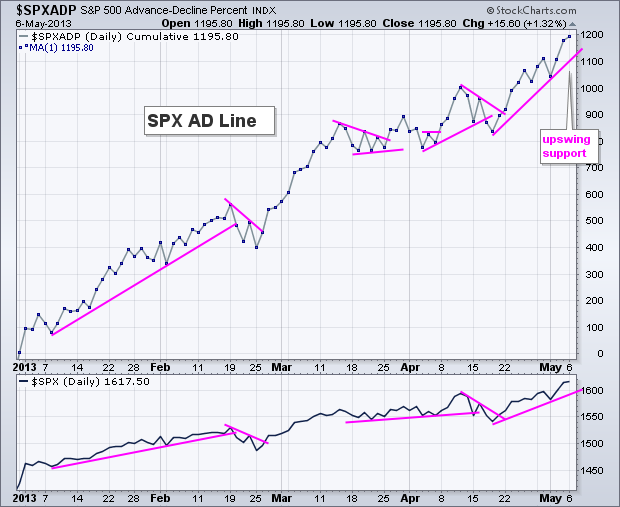
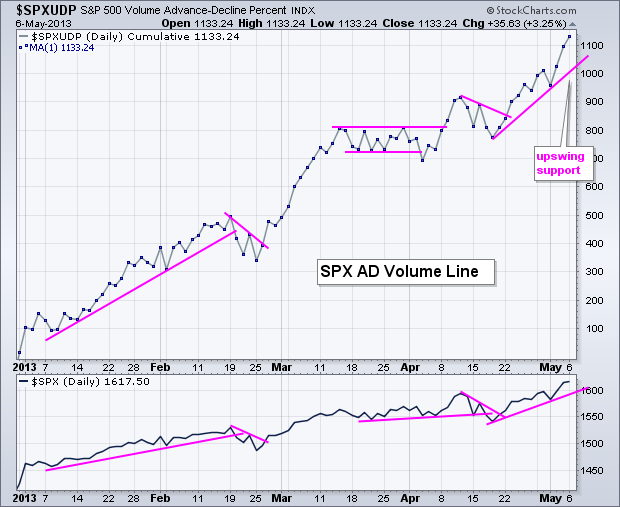


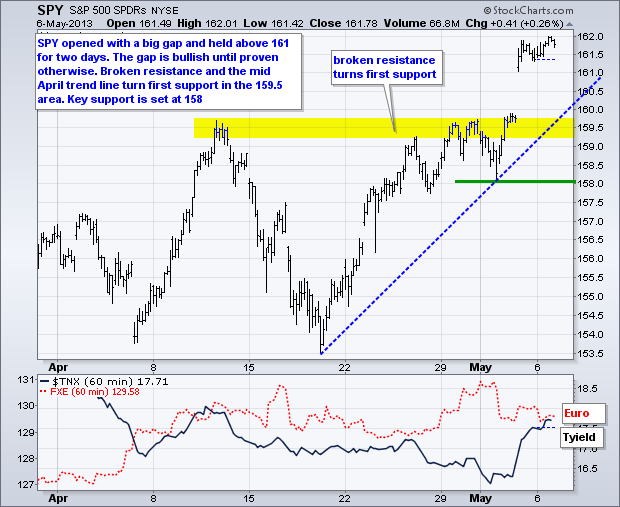
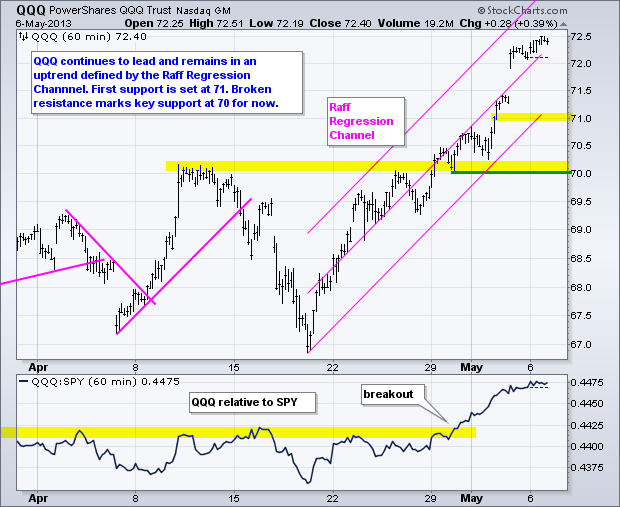
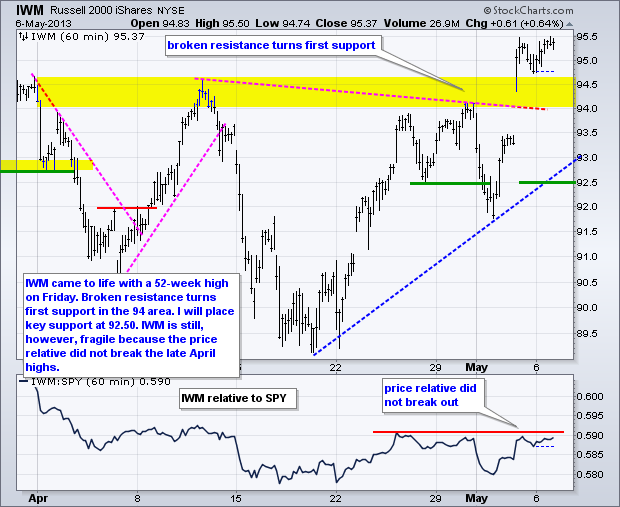
**************************************************************************
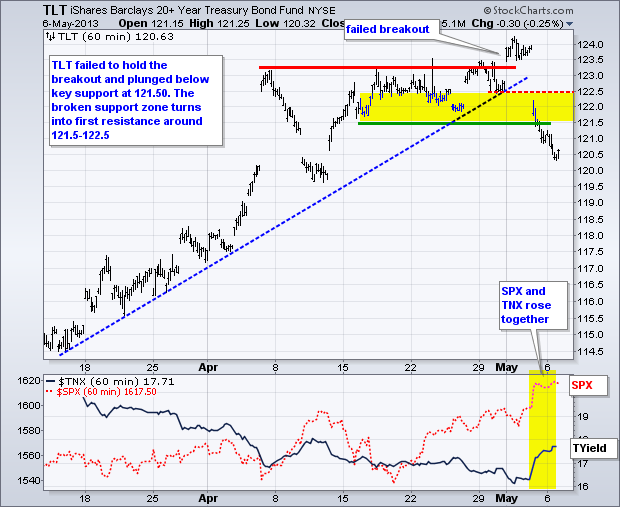
**************************************************************************
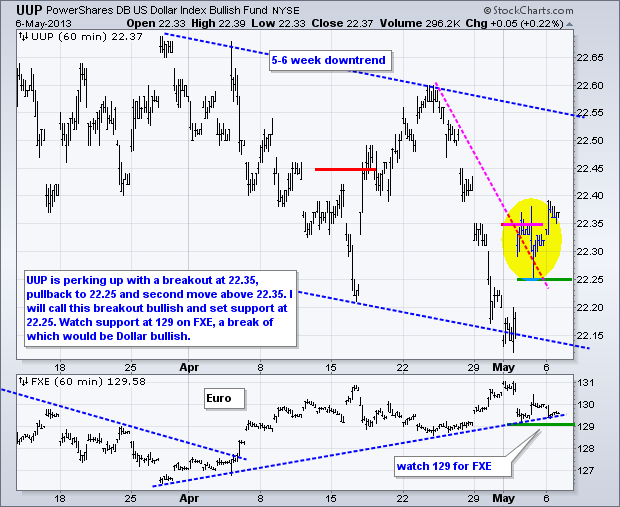
**************************************************************************
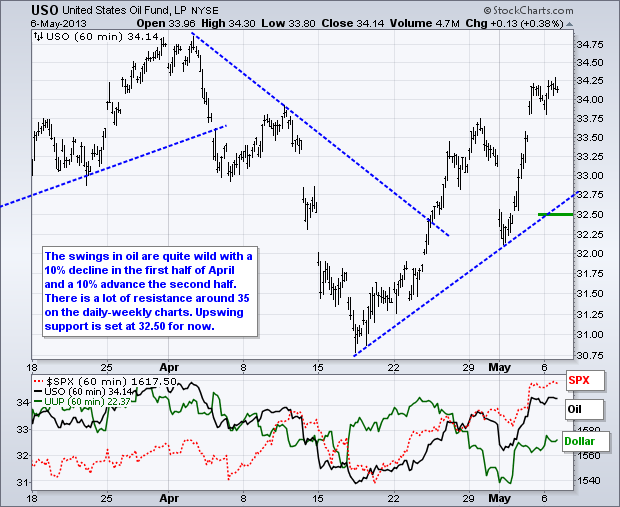
**************************************************************************
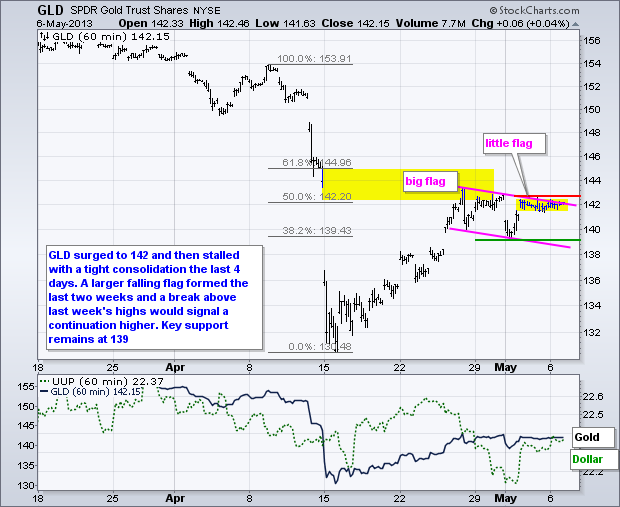
**************************************************************************
Key Reports and Events (all times Eastern):
Tue - May 07 - 15:00 - Consumer Credit
Wed - May 08 - 07:00 - MBA Mortgage Index
Wed - May 08 - 10:30 - Oil Inventories
Thu - May 09 - 08:30 - Jobless Claims
Thu - May 09 - 10:30 - Natural Gas Inventories
Fri – May 10 – 08:00 - TGIF
Charts of Interest: Tuesday and Thursday
This commentary and charts-of-interest are designed to stimulate thinking. This analysis is
not a recommendation to buy, sell, hold or sell short any security (stock ETF or otherwise).
We all need to think for ourselves when it comes to trading our own accounts. First, it is
the only way to really learn. Second, we are the only ones responsible for our decisions.
Think of these charts as food for further analysis. Before making a trade, it is important
to have a plan. Plan the trade and trade the plan. Among other things, this includes setting
a trigger level, a target area and a stop-loss level. It is also important to plan for three
possible price movements: advance, decline or sideways. Have a plan for all three scenarios
BEFORE making the trade. Consider possible holding times. And finally, look at overall market
conditions and sector/industry performance.

About the author:
Arthur Hill, CMT, is the Chief Technical Strategist at TrendInvestorPro.com. Focusing predominantly on US equities and ETFs, his systematic approach of identifying trend, finding signals within the trend, and setting key price levels has made him an esteemed market technician. Arthur has written articles for numerous financial publications including Barrons and Stocks & Commodities Magazine. In addition to his Chartered Market Technician (CMT) designation, he holds an MBA from the Cass Business School at City University in London.
Learn More
